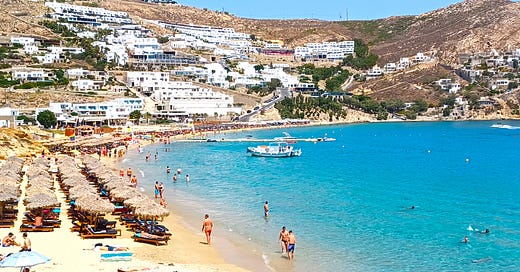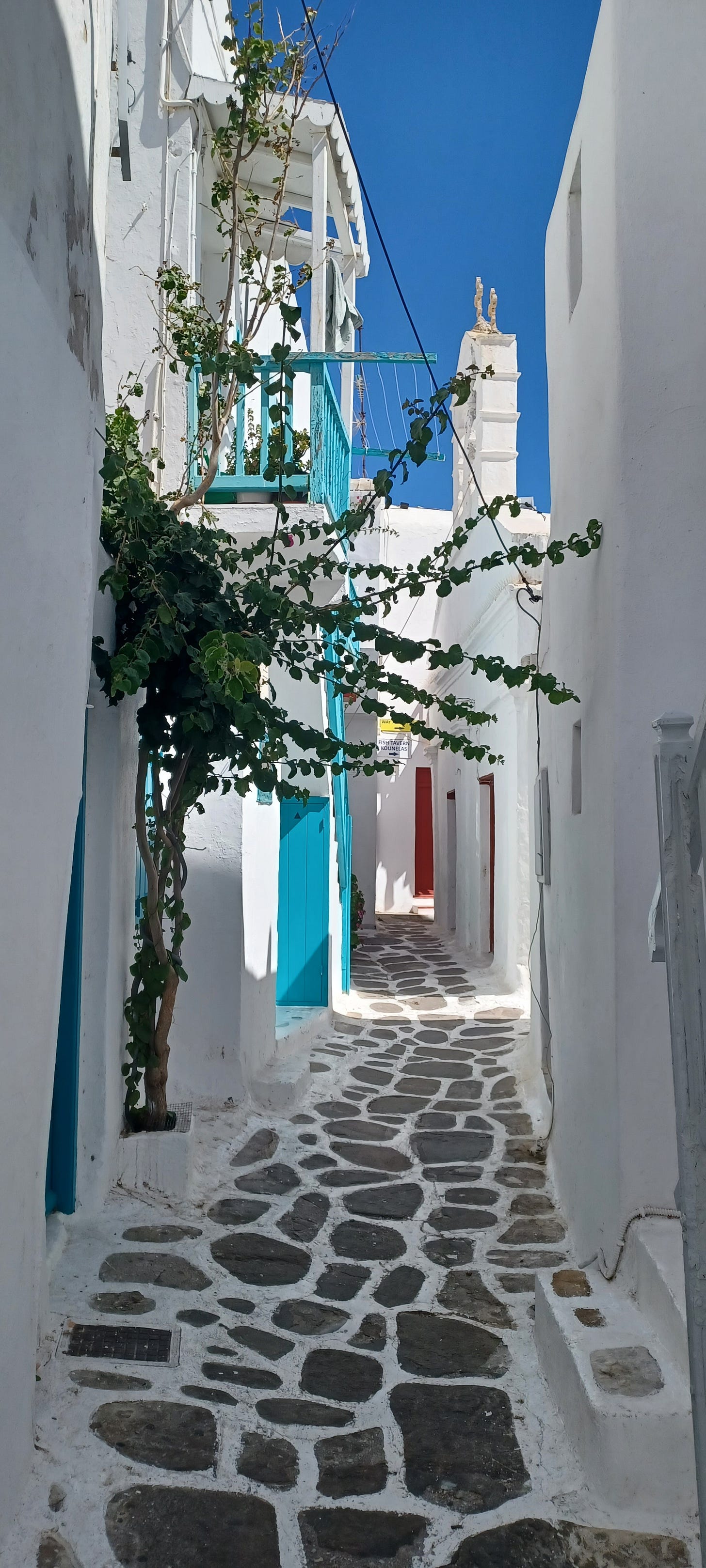French Accor CEO says pair of Mykonos hotel projects canceled because of "climate change" — but Four Seasons is undeterred
There is a sense that hotel development on the island is getting out of control
Mykonos is one of the most hyped islands in the world — even that turkey Elon Musk has to get his fix — but is the hotel development going overboard?
It is certainly a mixed picture, as some recent statements by Accor’s CEO, Sébastien Bazin, seem to indicate. The travel site Skift reported that Mr. Bazin said the French hotel giant “decided not to open two hotels, which were meant to be built” citing climate change and “an assessment on geographies in which we have water shortages and fire hazards.”
Many “geographies” — California comes to mind — face water shortage issues. Some Greek islands do have water scarcity issues as more land is developed. However, one thing Mykonos does not have is trees, or not many, and not much vegetation either: the island is basically a barren rock with rowdy nightlight and lots of good beaches. That’s part of the allure. So, with all due respect, there is simply not much of a fire hazard in Mykonos — it’s not Pacific Palisades, where there is (or was) a heck of a lot more to burn.
The hotels in question were to be branded as Raffles Mykonos and Fairmont Mykonos. But Mr. Bazin’s declaration that Accor will no longer be building in “fire hazard geographies” does ring a little hollow. There is something a little off kilter about that phrase itself, like that other manufactured phrase, “whole of government”: this sounds somewhat the language of obfuscation.
As The New York Times has reported, there is a “wretched” side to the building boom in Mykonos, and though it might be convenient to hide behind climate change as the factor in what does or doesn’t get built, there is often more going on than meets the eye. For one thing, there is no shortage of illegal construction on the island, even though more inspections are now being carried out following the passage of relevant Greek legislation in 2024.
Secondly, there is also a new Four Seasons coming to town. According to a press release, the Four Seasons Resort Mykonos, Greece will be “a new beachside property nestled within the soaring cliffs and crystal blue waters of Kalo Livadi Bay.” The brand new resort “will take shape on an unspoiled 649,322 square feet of land, spanning from the sandy beaches to the picturesque coastal cliffs.”
Early word is the resort, set to open next summer, will feature 94 rooms and “will also offer an exciting variety of restaurant and bar options designed by Rockwell Group, such as an al fresco pool-side Italian venue, a modern interpretation of a Mykonian kafeneio, and a beach experience harmoniously integrated with its environment and celebrating its natural beauty.”
How about those “fire hazard geographies,” then? It is doubtful that the Toronto-based Four Seasons group, with revenues exceeding $4.3 billion, would undertake such a major project without having down the relevant risk assessment. Is it really plausible that Four Seasons wouldn’t deem the fire risk on barren Mykonos too high to build a new hotel, but that Accor would?
We are skeptical. Like on many other Greek islands there is a worrisome trend toward overdevelopment, but that’s another story altogether. With Accor’s decision not to build on Mykonos, it seems likely there are other issues at play: the company might have been overextending itself on an island that already has so much new construction that in peak season, as we can regrettably attest, there are often sky-high prices and traffic jams.
Wait a minute here — don’t we already have L.A. and Miami Beach for that?
Maybe try Kea this summer instead: there, chances are you won’t bump into either Elon Musk or Jeff Bezos’s big yacht — which sounds mighty fine already.
Update: On March 13, Greek newspaper Kathimerini reported that sources claimed Accor canceled the project “due to ‘insurmountable’ difficulties” in licensing and development. Climate change was not cited as a factor.






